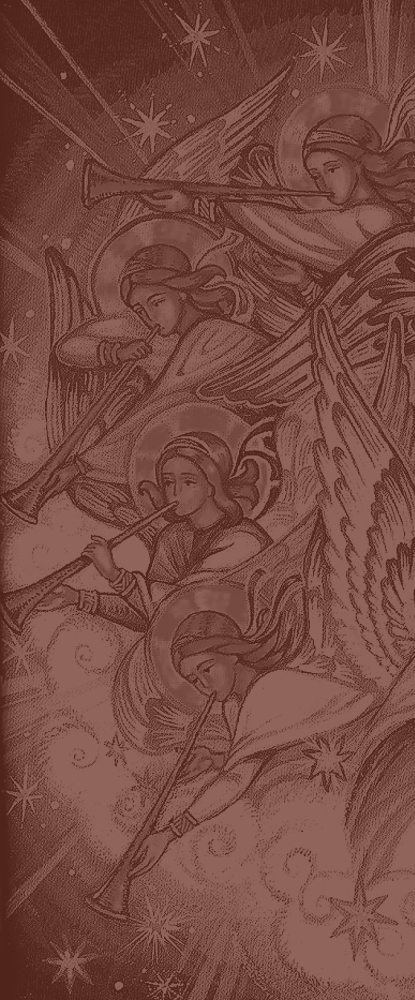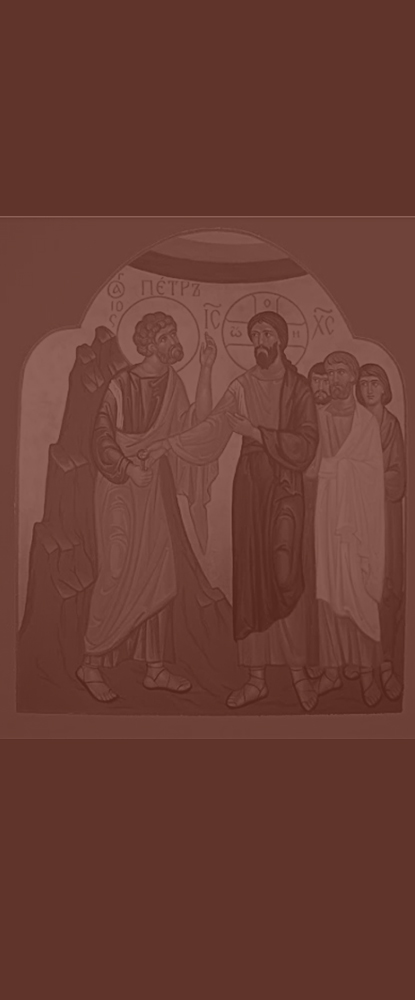THE FEAST OF GREAT HOPE
Archpriest Sergiy Baranov
Church of the Iveron Icon. Iveron Monastery of Orsk
07.01.2024
In the name of the Father, and of the Son, and of the Holy Spirit!
Tonight, in this small body of the Baby, a great hope of humankind was born. This event brought hope to people. However, I would like to say now that everyone has his or her own hope. Satisfied, rich and even pampered people have one hope, those who bear some burden have an absolutely different hope. The third kind of hope has those who suffer from great sorrow. Those who are thinking only about the festive table have their hope and a totally different hope has a soldier lying in a trench in mud. And what does his mother hope for this night? Everyone has their own hope. Everyone hopes according to their mindset and well-being. A person who is too prosperous has somewhat unbeautiful hopes. He hopes to multiply his wellness, become more happy and stable. Meanwhile, a person who is easily satisfied, not pampered by this life and has not got much joy but a lot of sorrow in it, has a different kind of hope and a measure of hope.
Today, by His coming into this world, the Lord brought hope and, at the same time, disappointment to everyone. This is so because not every human hope is in tune with the providence of God. Sometimes it is in resonance with the providence of God, it does not match with it, and this is why it turns into disappointment and even hatred to God, on Whom they rested their hopes. How Israel was stirred up during the preaching of Christ! How many hopes there were! How much optimism and energy flew in the society! Everyone hoped according to their thoughts and abilities. Some thought He was a new ruler Who came to relieve people from the Roman yoke and help Israel live independently and prosperously. Some hoped for health and acquired it partially. Some was simply grateful for multiplication of bread. Everyone hoped for their measure.
However, when the Lord suddenly began to speak about the cross, many hopes were not met and turned into disappointment. After this, as the Gospel says, many people “walked with Him no more.”1 This phrase, “walked with Him no more,” is a very delicate one. In fact, everything was significantly deeper. Many of those people walked under the cross then and spitted upon the crucified God. They mocked and blasphemed, “Physician, heal yourself!”2 “If He is the King of Israel, let Him now come down from the cross.”3 This is how their hope, faith and reverence to this Great Teacher changed into a profound disappointment, a disappointment to hatred.
Who almost does not get disappointed? The one who does not need much. As a rule, great demands bring disappointment. What does our hope stand for? Our today’s hope? The hope of the Russian people who have come to church tonight at last? On the night of the New Year, the church was half-empty. Glory to God, tonight, we, priests, look out of the altar and see that the church is crowded with people up to the doors at last. And everyone hopes for his or her own. If we hope only for earthly things, even in the most good and kind meaning of this hope, we can easily get disappointed. Perhaps, someone does not hope for unbeautiful things as richness and pleasure, but for very high yet earthly purposes. Someone might think there will be peace in the whole world that will never end. Look back at history and you will be disappointed, humankind has been at war throughout its life. Someone hopes for peaceful times, but here his enemy creeps up behind his back to shatter his peace. I am not speaking only about global peace, not only about the peace in the country or at work, we cannot even get along within our families.
The main hope, which Christ brought to us, is that everyone of us can change, change for the better. It is not about changing the world, as it is globally impossible. Look back again and get disappointed once more. We will not change this sinful world. We can change our attitude to our neighbors and ourselves and improve ourselves. This is the hope that God brought to us. If we do not understand correctly why He came and what He brought to us, we might get disappointed. He came to enter every one of us and work a small miracle of deification of a human. This is His great idea about people, so a little human became a little god. Not by himself but in reunion with Divinity. And in a way that a little happiness, a little truth and a little love appeared in this little god. However, “with men this is impossible.”4
Why have we just partaken in the Eucharist? What is the meaning of the Eucharist? The Lord brings us this mystery. He is not limited by any form, but for us, people who have a shape, as every one of us bears a form, He enters the form of Body and Blood and allows us to take Him into ourselves. Our physiology unites with His physiology because He became a perfect God and a perfect Man. Our spirit unites with His Spirit, our soul becomes the soul of God. If we could only understand the mystery of Communion in all its theological depth, no one would ever need to make us come and partake in it. We would have followed a priest, pulled him by the robes and said, “May I receive the Eucharist again?” “May I come tomorrow for it?” “May I receive it twice a day?” To which he would say, “Well, I’m sorry, you cannot receive it twice a day, only once.” “Then I’ll come tomorrow.”
This is the meaning of God’s reincarnation. It is in reunion of His Humankind with our humankind and our becoming gods in lowercase. There is no happiness in a human himself; a human is imperfect. There is no eternal life in a human himself; he is mortal. Any doctor will say that a human is mortal without God. This is so because life is in the realm of Divinity, and we can inherit eternal life only through the reunion with Him; only by catching on Him can we do this. No person has perfect love; our every love is damaged. It damages egotism, which ruins our relationships. Only God is perfect love. “God is Love,”5 the Gospel says, and only in reunion with Him we approach love. And this love is not selfish, but sincere, pure and perfect, which brings us happiness, joy and optimism. Nothing brings that much joy but love. It is the highest delight. However, there is no his own love inside of a human. “God is Love,” the Gospel says very definitely and finally. It is not I who is love but God is, this is why I go to where God is, to the place where I am reunited with Him through the Mystery. This is a church where I reunite with Him taking Him inside of me. I reunite with Him both in the Mystery of the Body and Blood and in the mystery of prayer, which also comes inside of me together with Jesus Christ, “Jesus, my Jesus, the Sweetest Jesus.” When I say this many-many times, sincerely, attentively, reverently, Christ Himself suddenly comes into me together with these words.
Today’s Feast is the feast of hope and the feast of disappointment for those who have the wrong hopes. Let us hope to change ourselves, to change something inside of ourselves with God’s help. This is our Great Hope, this is what God came for, not to fill the outer with happiness but to fill our inside with joy, even if there is global trouble, an outstanding trouble, on the outside. The Lord came to fill the inside with happiness, pureness, joy and love.
For unto Him is due all honor and worship, now and ever, and unto ages of ages!
A Blessed Feast to all of you! If you want, I will kiss you. Father George will give you the cross now and I will kiss you.
1 Jn. 6:66
2 Lk. 4:23
3 Mt. 27:42
4 Mt. 19:26
5 1Jn. 4:8

